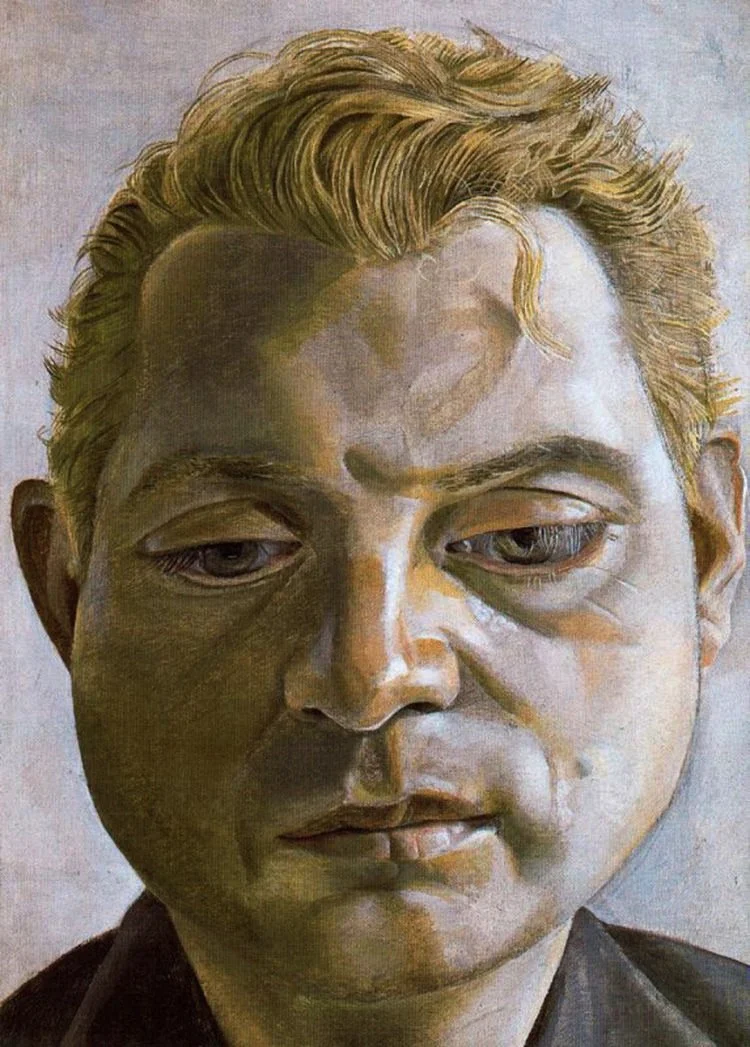Two Titans
Two titans of the twentieth century: Francis Bacon and Lucian Freud.
The critic, writer and curator Martin Gayford once wrote that Bacon's famous phrase, "the brutality of fact", applied to the work of Lucian Freud. David Sylvester disagreed, and responded, "Bacon hit upon that phrase when trying to define a key quality which he found in Picasso but found wanting in Matisse, a quality that clearly involves a sense of the human condition, which in turn demands a measure of universality. Freud seems to see the world at close range through his own eyes only, painting attractive or repulsive sights according to his personal whim."
In turn, Gayford formulated his riposte, in his exceptional book, "Man with a Blue Scarf", "It is exactly Lucian Freud's treatment of the world as made up entirely of unique individual things - people, animals, objects - that is his greatest strength. He has resisted the tendency of modernist art to subdue the complexity of the world to a style or a concept. But maybe the 'brutality of fact' isn't a phrase that precisely suits what he does. Perhaps, the 'awkwardness of truth' would be nearer the mark."
These two friends operate and explore the world at vastly different ends of the spectrum, especially in terms of technique, style, and execution. Yet, in many respects, they couldn't be more inapposite allies in a battle against the banal. The fixed, the stable, the inert, especially the inert, is called into question, in a radical and germinal fashion. Take, for instance, Freud's criticism of Vermeer, "It isn't a matter of incompetence. It is that in a funny way his people just aren't there."
Don't be mistaken, though, it's not the theater of art that interests Freud and Bacon. Instead, it's the un-theatrical. Here's Freud on 'why he doesn't like taking drugs'. "People say such things as, "Oh, they make me see such marvelous colors" - which to my mind is a horrible idea. I don't want to see marvelous colors. I want to see the same colors, and that is hard enough. Then they say that they are taken out of this world, but I don't want to be out of this world, I want to be absolutely in it, all of the time."
Which, takes us to Freud's remarkable definition of imagination. He defines it, as such: "A great deal of what is normally thought of as intelligence, he points out, is actually imagination - that is, an ability to see things as they truly are." On this model, imagination is active, and engaged, as it participates in the world, leaving no room to confuse intelligence with imagination.

